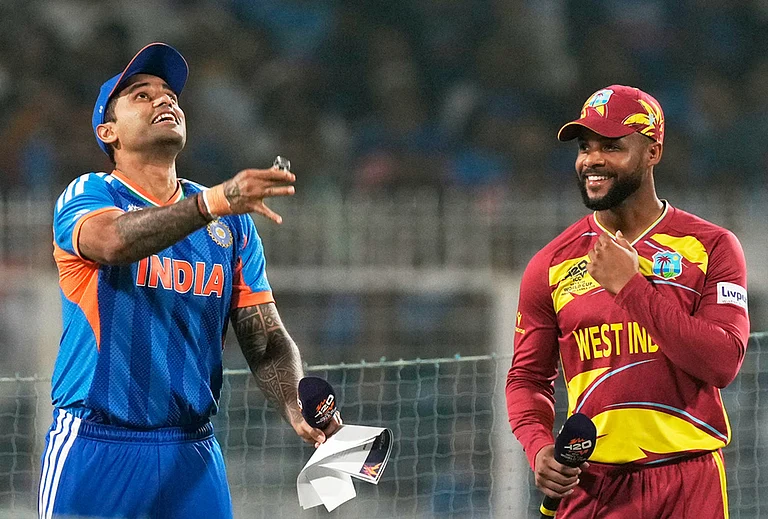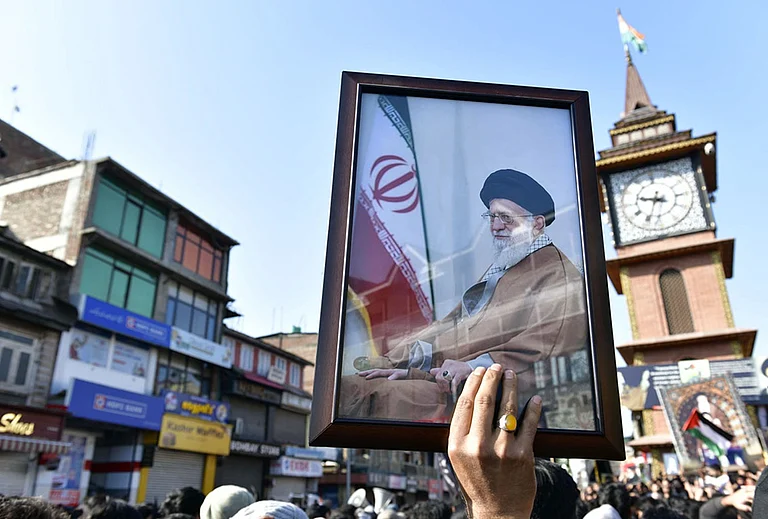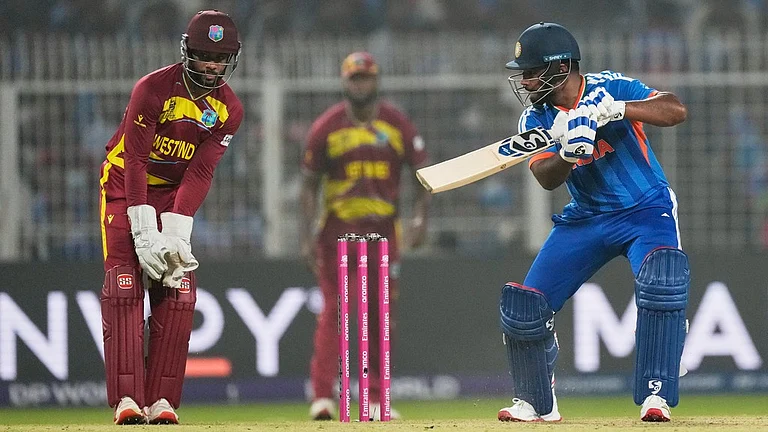Mumbai’s Smita Affinwala, a thirtysomething smoker of over two decades, has successfully completed the course and recommends it to whoever’s willing to listen. Says an enthusiastic Affinwala: "I’m extremely happy with the result as I was able to stop within six days of the medication and that too without any adverse side-effects."
As the country’s courts force powerful tobacco manufacturers (faced with the prospect of imminent diversification) to resort to subliminal marketing and as the health industry strikes activist postures, it’s consumers like Ajay and Smita who’re getting to be big market players in the war of the weed. Glaxo Smithkline (GSK), the manufacturer of Zyban—the best-known of the three new smoke-cessation drugs in the market—has pinned a lot of hope on its revolutionary "critical product". Cipla’s Nicotex and Sun Pharma’s Smoquit are the other two products which have, belatedly, and thanks to India’s unique ‘process patent only’ laws, joined the war. Also joining the medical ‘war’ against smoking are a slew of anti-smoking clinics recommending these drugs.
But what’s this new magic drug? And why is it catching up with serious quitters? It was a stray discovery that led California’s Loma Linda University’s Dr Linda Hyder Ferry to rethink another function for a well-known anti-depressant called Wellbutrin. Some smokers among her patients reported that the drug not only rid them of their blues but also made them kick the butt. Further test-results revealed that the magic molecule (bupropion hydrochloride—a bitter-tasting compound—which produces effects of local anaesthesia on the oral mucosa) was also acting on the brain centre (producing dopamine and noradrenaline) responsible for the craving for puff sticks. (Nicotine is more addictive than heroin, cocaine, alcohol and marijuana because it usurps triggers for the brain’s pleasure-giving dopamine system.) Six years of clinical trials corroborated Ferry’s belief that this was something which would immensely benefit habitual quitters.
In 1997, GSK’s Wellbutrin had another avatar and the world got its first non-nicotine smoke-cessation formula, Zyban. Launched in India on World No Tobacco Day (May 31 this year), Zyban is now set to become an important anti-smoking tool. And the best part is that it has both doctors and smokers in its inaugural throes. Vikram Sarabhai, consultant pulmonologist at the Escorts Heart Institute and Research Centre, New Delhi, is exuberant: "This is definitely a shot in the arm. Earlier there was a combination of (the quitter’s) willpower and scary talk that made up smoke-cessation therapy." Today, there’s something more tangible.
What’s even better, say physicians, is that the prescription drug’s success rate, even after a year of therapy in the US, is higher than the requisite 30 per cent. Says Sarabhai: "Even though the initial rate of success is close to 80 per cent, compliance and maintenance are problematic sometimes." But clinicians are excited about the molecule’s nicotine-free composition as sometimes people weaned off cigarettes got addicted to nicotine replacers such as patches, inhalers and chewing gums. "This is a very effective drug," says Delhi-based chest specialist P.P. Bose, whose practice has seen nine in 12 people get cured since the drug was introduced. "One reason for Zyban’s success is that it allows the addict a long tether. The patient is asked to set his own quit date which is usually a week after the start of the course," explains Bose.
But some of the smoker-patient drug users complain of a few side effects. Prasad Mukherji, 41, a smoker for all of 19 years who’s been on the treatment for a few weeks, complains of dryness of the mouth and uneasiness. "I think the medicine has slowed me down a bit. Things like driving and drafting messages happened automatically, now they take a bit more of my awareness. But these are small side-effects. As an anti-smoking drug, I think this is fairly effective," says Mukherji.
Bupropion’s side-effects include restlessness, loss of appetite, disturbed sleep, dryness of mouth, nausea, dizziness and cold sweats. But a small minority of practitioners feel that the bigger ones are hushed up by the pharmaceutical conglomerate. Gorav Gupta, a psychiatrist at Delhi’s Batra Hospital, is not too impressed by GSK’s sweeping claims. Says he: "I’ve been prescribing the drug for the past couple of months and have now come to see it only as a partial helper. Motivation is still the most important tool. Besides, the cost is killing (two tablets a day for Rs 80 for seven weeks!). Half the patients are not able to tolerate it so the dropout rate is very high. One of my patients also complained of seizures." Seizures, in fact, are a real fear with the drug but that, says Glaxo India’s factsheet on Zyban, happens only in cases of overdose or in people already suffering from neural disorders.
Interestingly though, when Zyban was still Wellbutrin the anti-depressant, the US’ Food and Drug Administration had made it mandatory for doctors to monitor users for toxicity. But there’s no such regulation for the new preparation. India’s drug controller even waived compulsory clinical trials for Zyban, citing its social imperative in a country of over 200 million tobacco users.
But most clinicians don’t seem to have a problem with the new drugs. Suresh H. Advani, head of medical oncology at Mumbai’s Tata Memorial Hospital, has only praise for the molecule. Says he: "I have all through my three decades as a doctor tried to educate people against this deadly habit of smoking. Zyban comes as the first real solution." Glaxo’s website (www.zyban.com) and its helpline (9622005555) also have a dedicated pool of doctors who help prospective quitters with Zyban.
Smokers also have alternative drugs to choose from. Cipla’s Nicotex and Solaris Pharma’s Smoquit are both available at a third of the original tablet’s price. But Glaxo India’s respiratory division head Ram Limaye feels his company still has an upper hand. Says he: "Ours is a standardised product that is manufactured in the US, plus we have robust clinical data to back our claims. And what’s more, ours is the original sustained-release product (a drug which releases slowly in the bloodstream)." Sustained-release technology in such time-and-concentration-dependent drugs is vital as it ensures the drug’s long-term potency. "The therapeutic window is the concentration required for the drug to be effective and we have rigorous research and data to get that right," says an emphatic Limaye.
Zyban also comes with various extras that, insists Limaye, are part of the pharmaceutical company’s new "therapy area focused" approach. Chemists are now pushing aRs 2,400, 60-tablet Zyban Advantage Plan package which comes with a ‘stress press’ craving reliever, a CD of de-addicting melodies, a cassette of 20 creative ways of quitting, a diary to note milestones and a mock citation to celebrate the ‘Big Quit’. Kicking the habit has never been more fun.























